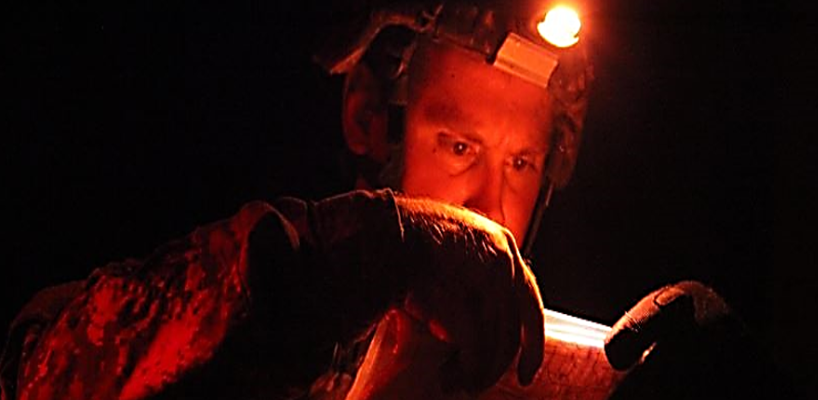As military deployments overseas have increased opportunities in the military contracting community have also been on the rise. According to a new Pentagon report to Congress, the number of private contractors working for the United States Defense Department in Iraq grew eight-fold over the past year. That rate has outpaced the growing number of American troops training and advising the Iraqi military.
The military industry trade publication Defense One also reported that as of January of this year there were 2,028 Pentagon contractors now filling support roles in Iraq, up from 250 one year ago. That number of military contractors is also a fraction, as another 5,800 are now employed by other agencies such as the State Department.
This surge in deployments to the Middle East to battle ISIS, the Islamic State in Iraq and Syria, has directly created new opportunities in the military contracting community. However, not all new hires will face deployment overseas. AlliedBarton Security Services, an industry provider of trained security personnel, announced it had hired more than 5,000 military veterans and reservists in 2015 as part of its commitment to hiring 25,000 veterans and reservists over five years.
“Our consistent commitment to hiring military — and meeting our 5,000 hires per year goal consecutively — further demonstrates the strategic link between military and security careers,” Bill Whitmore, AlliedBarton chairman and CEO said in a statement.
The chaotic situation abroad could open the door for those who exited the military in recent years and look to transition to a contractor role.
“We see every time that there is a military action or increase in actions abroad that there are opportunities for veterans seeking employment on the contractor side,” said Dr. SujeetShenoi, professor of computer science at the University of Tulsa.
Logistics and Support
Unlike with the invasions of Afghanistan in 2001 and Iraq in 2003, today’s conflicts involve remote operations; the U.S. involvement is at present tied to air missions as well as logistics, support and training. All of this needs support from the military contractors.
“We are seeing an increase in the number of contractors that are being deployed and it is spread across logistics, maintenance, base support and even language and translation positions,” said Dr. Molly Dunigan, political scientist at the RAND Corporation. “This is nothing like what we saw in the 2003 to 2008 timeframe but it is picking up.”
However, even in support positions there can be dangers involved.
“This can mean heading back to regions that are now very volatile, so there are risks with these opportunities,” added Dunigan. “But this is also why contractors seek out veterans, as they can be accustomed to working in these sort of situations and environments.”
Veterans are good candidates for overseas deployment for other key reasons as well.
“They know the military jargon and operation terms,” said former intelligence officer Charlie Sowell, senior vice president of Salient Federal Solutions. “They have a good work ethic, which often allows them to hit the ground running. They are patient too so they know they may have to wait for clearance when positions aren’t exactly fast tracked.”
Beyond Boots on the Ground
The military deployments overseas can also mean greater support back home as well, especially in other support and security roles.
Shenoi suggested that veterans who seek to learn new skills can also easily fill needed support positions such as those in cyber security as cyber warfare has continued to be another setting for conflict in the 21st century.
“The military is more diverse, so that means the contractors need to be more diverse said cyber security expert Ondrej Krehel, founder and CTO of LIFARS.
“The way we fight a war has changed,” added Krehel. “It isn’t just boots on the ground, and in the Middle East this means there are opportunities in cyber warfare and remote warfare including those operating drones and other unmanned vehicles. These units need support from engineers and others who really understand these advanced systems. The door is wide open for those with the technical knowhow.”
Through retraining, veterans could easily fill the vacancies in cyber security that are indirectly tied to the various global threats.
“By learning new skills, these veterans can find new opportunities,” Shenoi noted. “They may not be able to fight on a battlefield as they get older, but they can help serve their country in other ways. With the new skills it is going from one life serving the country to living another life and continuing to serve.”
“We are also seeing that veterans are filling roles in our workforce in satellite communications,” added Sowell. “We are seeing a spike in those kinds of needs as well.”
Beyond the deployments in the Middle East, the United States faces other threats including those in the Ukraine from a resurgent Russia and in the South China Sea as the Chinese have been actively rattling sabers with efforts to militarize its manmade islands. These potential hot zones could increase the need for skilled contractors as well.
Another area that Sowell said there has been a rise in is foreign military sales.
“Whenever we sell ships, aircraft or manufacture weapon systems someone needs to go show the buyer how to utilize them,” he explained. “This has continued to create opportunities for veterans who have expertise and experience on those systems.”
One upside of a very hostile world is that it continues to create opportunities for those looking to serve.
“The world is so dynamic right now that there seems to be no end to new opportunities for those willing to deploy,” said Krehel. “One door closes and another opens.”




